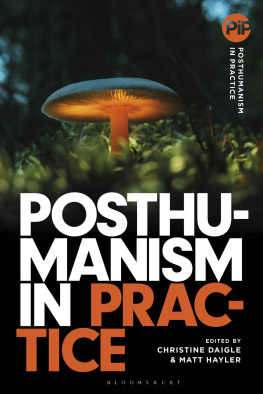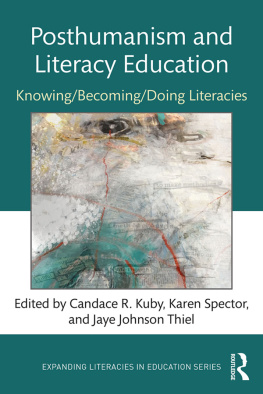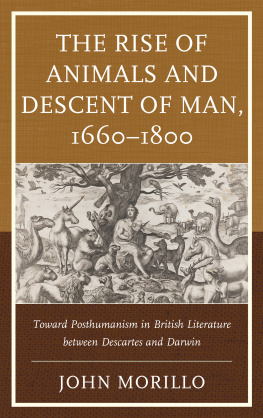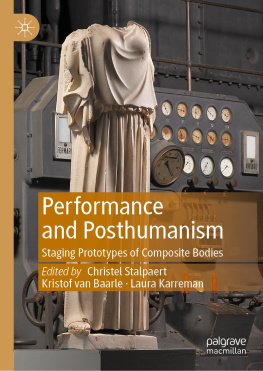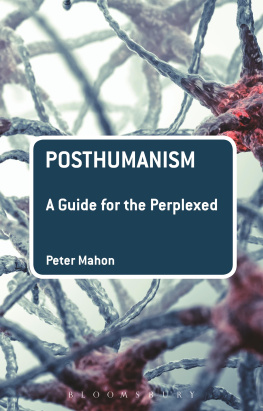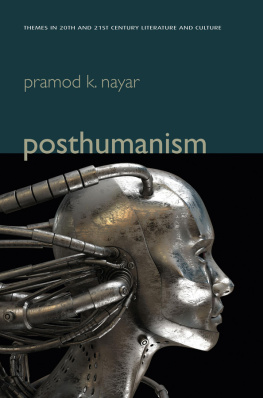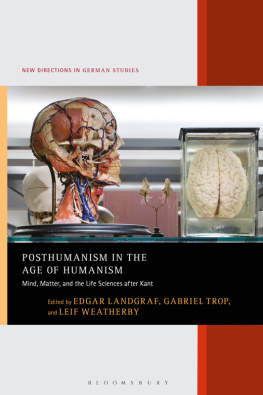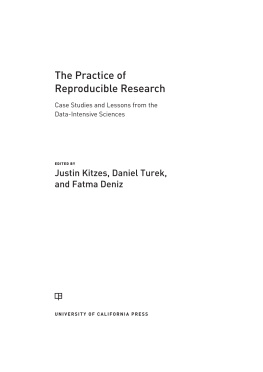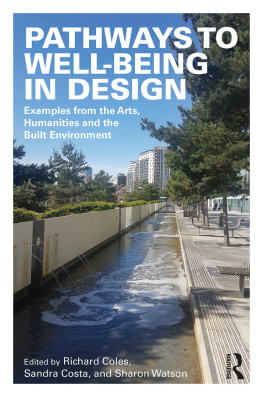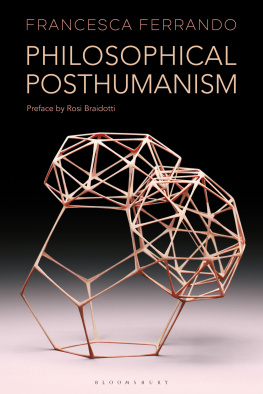
Posthumanism in Practice
Posthumanism in Practice
Series editors: Matt Hayler (University of Birmingham, UK), Danielle Sands (Royal Holloway, University of London, UK) and Christine Daigle (Brock University, Canada)
Ways of thinking allied with posthumanism have received increasing interest across a number of disciplines, predominantly in philosophy and the humanities, but also in biology, law and ethics, and art theory and creative practice. Indeed, we contend that the fields potential implications extend to the majority of academic disciplines. Focusing on emerging trends, cutting-edge research and current debates, Posthumanism in Practice presents work in and across multiple disciplines that investigates how posthumanism can effect change.
The questions that posthumanism raises, of what it means to be human, the nature of our relationship with the world, our relative importance, our obligations, entanglements, potentials and limitations, speak to every aspect of life. This series will address questions such as: What are the implications and entailed effects of the revelations of contemporary science and philosophy? Can our laws, societies, and egos hold up to our becoming less special? What can we do, and how might thinking differently enable us to act differently?
Works in this series will pose these kinds of questions and offer practical answers, suggestions and provocations. The aim is to inspire work that isnt occurring often or loudly enough, and to promote a wide variety of voices which are left outside of the arenas where they might be most usefully and importantly heard. Disciplinary conversations also often remain siloed, but posthumanism is inherently an interdisciplinary concern; the field questions (but doesnt necessarily reject) the usefulness and stability of existing disciplinary boundaries. As such, this series will prioritize works which bring insights across those boundaries and which demonstrate the real-world potential and/or risks of posthumanist ideas.
Editorial Board:
Megen de Bruin-Mol (University of Southampton, UK)
Emily Jones (University of Essex, UK)
Yoriko Otomo (Director of Global Research Network)
Pedro Oliveira (Independent Researcher)
Rick Dolphijn (Utrecht University, Netherlands)
Isabel Galleymore (University of Birmingham, UK)
Craig N. Cipolla (Tufts University, USA)
Stefan Herbrechter (Heidelberg University, Germany)
Simone Bignall (University of Technology, Sydney, Australia)
Olga Cielemcka (University of Turku, Finland)
Dominique Chen (Waseda University, Japan)
Mickey Vallee (Athabasca University Canada)
Posthumanism in Practice
Edited by
Christine Daigle and Matt Hayler

Contents
Christine Daigle and Matt Hayler
Stuart Murray
Aaron Bradshaw
Bryan Lim
Steve Klee and Kirsten McKenzie
Lin Charlston
Madaleine Trigg
Marie-Andre Robitaille
Poppy Wilde
Deborah Lawler-Dormer and Christopher John Mller
Hlia Maral and Rebecca Gordon
Debra Harwood
Laryssa Paulino de Queiroz Sousa and Rosane Rocha Pessoa
Stefan Herbrechter
Christine Daigle
Christine would like to thank the Helsinki Collegium for Advanced Studies, where she held a core fellowship during much of the time that work on this collection was done. The supportive friends and work environment were an energizing backdrop to see this project through.
Matt would like to thank Holly for being the best thing about the last couple of years and for always being excited when Im home. You still suck at walking nicely; well get there. Oh, and mum, thanks mum.
The editors would like to thank Brett Robinson for his incredibly helpful assistance in getting a number of these chapters into final shape during a really difficult time; Liza Thompson and Ben Doyle from Bloomsbury for getting this series up and running and generally being fantastic editors to work with; Danielle Sands, our wonderful partner in creating and editing this series; and our editorial board, who have already inspired where were headed next.
Aaron Bradshaw is a biological scientist whose PhD and postdoctoral research focused on the cell biology of neurodegenerative diseases. Since 2020 he has been working as an Independent Scholar with interests in the role of microorganisms in neurodegeneration and environmental issues. His forthcoming article in Environmental Humanities discusses how humans and microorganisms might form new relationships to collaborate on pressing environmental issues.
Lin Charlston is an independent researcher and a practising artist whose conceptual artist-books are represented in over forty public collections including Tate Britain and the Environmental Library at Berkeley. Her PhD at Manchester School of Art, MMU (2019), developed a sympoietic art practice with plants informed by posthumanist ethics. For Charlston, the artist-book is part of a collective, adaptive work which manifests during the co-expressive process. The artist-book I buried my arm (2018) relives a performative gesture of connection with the underground plant world.
Christine Daigle is Professor of Philosophy and Director of the Posthumanism Research Institute at Brock University. She has published extensively on existentialist thinkers such as Nietzsche, Sartre and Beauvoir, including her latest monograph, Nietzsche as Phenomenologist: Becoming What One Is (2021). She also co-edited the volume From Deleuze and Guattari to Posthumanism (2022) and is completing a monograph on the theme of posthumanist vulnerability.
Rebecca Gordon is a freelance researcher and writer in modern and contemporary art and has taught in the History of Art Departments at University College London and the University of Glasgow, as well as guest lecturing at the University of Amsterdam and New York University. Her current research focuses on care and emotional labour of social practice artists, a posthumanist ethics of care and the conservation of contemporary art as a counter-extinction activity.
Debra Harwood is Professor of Early Childhood Education at Brock University, Canada. Her research is situated within a framework of challenging the social, political, cultural and historical forces that have shaped central ideas such as care, professionalism, child agency, place and intra-active pedagogy. Her most recent project involved a study of young childrens entanglements within a forest, specifically examining how relationships with the more-than-human world might foster educational practices that support a more sustainable planet.
Matt Hayler is Associate Professor in Contemporary Literature at the University of Birmingham, and Co-Director of the Centre for Digital Cultures. His past work has looked at electronic reading via cognitive science, post-phenomenology, and the philosophy of technology (Challenging the Phenomena of Technology (2015); Ambient Literature (2022)). His current work looks at the implications of posthumanism for human enhancement projects, digital cultures, and moral responsibility (see e.g. Posthumanism and the Bioethics of Moral Responsibility in Bioethics and the Posthumanities (2022)).
Stefan Herbrechter is a writer, researcher and Privatdozent at Heidelberg University. He has published widely on English and comparative literature, critical and cultural theory, and cultural and media studies. His main publications related to his current research focus, posthumanism and its critique, include
Next page
